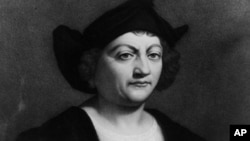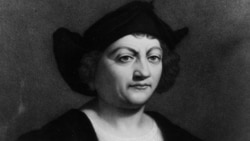Every year, the United States sets aside certain days to mark the historical events and principles we value most as a nation. The fall harvest festival of Thanksgiving honors the example set by America’s earliest settlers, for example. Independence Day in July celebrates our founding as a free nation, and the sacrifices of those who died in military service defending ours and other’s liberties are marked every May on Memorial Day.
On the second Monday of October we commemorate the voyage of discovery by Europeans to the Americas and the man who led it, Christopher Columbus. In a larger sense, though, it is a celebration of the cultural diversity brought by the waves of immigrants who followed the Italian explorer to these shores and the strength that their diversity has brought our nation. That heritage is enshrined on our nation’s Great Seal with the Latin inscription E Pluribus Unum: Out Of Many, One.
On October 12, 1492, three ships commissioned by the king of Spain made landfall among the outer islands of what is now the Bahamas chain in the Caribbean Ocean. Their commander, Columbus, had been tasked with finding a faster, more direct route from Europe to the trading centers of Asia. Instead, he found for Europeans an entire new world.
Columbus was a child of the Renaissance, a revival of the learning, culture and spirit of ancient Greece and Rome, notably preserved by Muslim scholars. The invention of the printing press in 1440 spurred a revolution in communication and learning. The works of the ancient Greek philosophers and other classical thinkers were widely published, and many began to question age-old assumptions about the physical world and human relations.
The "new learning," as it was called, led men to question authoritarian political systems based on the so-called "divine right" of kings. English political philosopher John Locke argued that all legitimate government rests on the "consent of the governed." He wrote that religious faith is a matter of individual conscience, not state direction, and that where one faith is persecuted, no faith is secure.
Empowered by these ideas, thousands upon thousands of Europeans followed Columbus’ path to new lives in the new world. Asserting the right of all men to freedom, they established the United States and transformed a wilderness into the freest and most productive nation in history. It is that legacy that we celebrate today.






